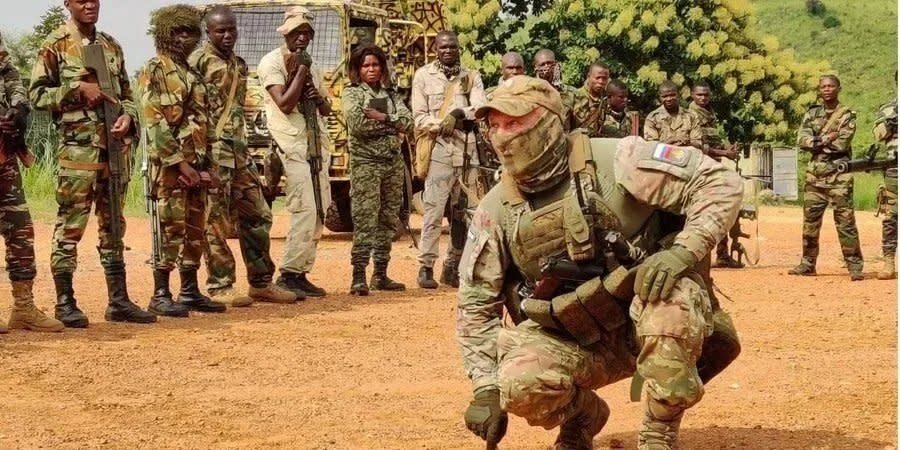West African conflict and its implications for Ukraine

The coup in Niger has become a grave escalation of the confrontation between Western and non-Western countries
The current political crisis around the West African nation of Niger goes far beyond being an internal conflict or an exclusively African issue. Although the war in Ukraine and the events in Niger are in no way related, both processes are part of a more global confrontation between the collective West and the non-West.
Read also: Blinken called "laughable" Russia's promises to supply grain free to African countries
On July 28, a military coup took place in Niger (not to be confused with neighboring Nigeria). The Presidential Guard (elite units guarding the presidential palace) overthrew the government of President Mohamed Bazoum and formed a transitional government, the Committee for the Salvation of the Fatherland. Later, their rebellion was supported by the Nigerian Armed Forces on the condition of guaranteeing the immunity of the president and members of his government, who were detained and placed under house arrest.
The main reasons for the coup include the following:
Read also: Putin remained transfixed by Ukraine during Russia-Africa summit – expert
Poverty and socio-economic problems: Niger is one of the poorest predominantly rural countries in the world, with more than 40% of the population (10 million people) living below the poverty line, i.e., earning less than $1.90 per day. Almost 4 million people need regular humanitarian assistance, and 20% of the population cannot fully cover their daily basic needs. Niger is home to 250 thousand refugees from neighboring countries. It is also a country that is considered one of the hottest on the planet, with most of its territory located in the Sahara Desert. At the same time, Niger has a very young population. Half of Niger's 24 million inhabitants are children under the age of 14, and more than 50% of children do not have full access to schooling due to violence, lack of schools, or infrastructure. This creates a toxic socio-economic environment that is easily manipulated and a breeding ground for protest and frustration.
Read also: A dangerous moment: what African countries propose to Ukraine
Anti-French sentiment: Many Nigerians blame their troubles on the former metropolis of France. French companies are active in the local market, often under unfair conditions, importing strategic resources such as gold, tungsten, and uranium. The country's national currency, the African franc, was created by France and pegged to the French franc and now to the euro, giving Paris the ability to dominate Nigerian fiscal policy directly. Niger's foreign exchange reserves are kept in French banks. France is accused of exploiting the country, and many Nigeriens believe that their companies forced the government to sign bondage agreements under which Paris siphons off large amounts of resources from Niger and pays little. In addition, the locals reasonably suspected France of interfering in internal affairs to support pro-French politicians who gave France mining concessions in exchange for money but did not improve life in the country. This is how Nigeriens perceived the overthrown government of President Mohamed Bazoum, who had a reputation as a pro-French political leader. Historically rooted and partly justified anti-French sentiments became the main background for the military coup, which was clearly anti-French in nature.
Read also: Ukraine to build grain terminal in Nigeria
Interethnic competition and imbalances: Niger is a country inhabited by several peoples: the sedentary Hausa agricultural tribes (55%), the Zarma and Songhai tribes engaged in animal husbandry, the nomadic Tuareg, Toubou, Fulbe tribes, Kanuri farmers and traders, and Arabs. President Mohamed Bazoum, who was ousted from power by the military, is an ethnic Arab, a group composing up to 1.5% of the country's population, a small minority. This is unlike his predecessor, Mohamed Issouf, who was a Hausa. In an effort to consolidate power, President Bazoum has reshuffled his staff and appointed his own people to key positions, which could lead to discontent among other ethnic groups who may have perceived his decisive dismissals of key security officials this year as an attempt to redistribute influence and flows in favor of his inner circle.
Read also: Russia’s Solovyev uses racist language to speak about ‘brother nation’ of Niger – video
Personal conflict between the president and the commander of the presidential guard: President Bazoum’s decision to dismiss General Abdrahmane Tchiani from the post of commander of the presidential guard is the event that precipitated the coup. The general was known for his loyalty to Niger's presidents and had helped suppress several coup attempts since 2011. Thus, he perceived his dismissal as a slap in the face and an insult, and therefore decided to go into open conflict with the president.
We’re bringing the voice of Ukraine to the world. Support us with a one-time donation, or become a Patron!
Read the original article on The New Voice of Ukraine

